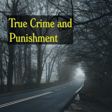
The Case of the Black Dahlia
This unsolved case revolves around confusion and speculation. Who was the mysterious woman dubbed the Black Dahlia, and who was her likely killer? Join Siera and Kayley as they delve into these questions and also ponder the roles of journalism and speculation in the world of true crime.
Sources:
https://www.latimes.com/archives/la-xpm-2003-jan-09-me-asdel9-story.html
https://www.latimes.com/archives/la-xpm-2004-nov-21-tm-dahlia47-story.html
https://www.latimes.com/archives/la-xpm-2004-dec-19-me-knowlton19-story.html
https://www.latimes.com/archives/la-xpm-2003-jan-09-me-asdel9-story.html
https://www.independent.com/2018/06/07/black-dahlia-never-dies/
https://www.latimes.com/archives/la-xpm-1999-nov-01-me-28619-story.html
https://www.theguardian.com/us-news/2016/may/26/black-dahlia-murder-steve-hodel-elizabeth-short
https://www.sfgate.com/news/article/elizabeth-short-george-hodel-suspects-clues-13354993.php
https://www.fbi.gov/image-repository/police-bulletin-short.png
Books:
American Detective: Behind the Scenes of Famous Criminal Investigations, Thomas A. Reppetto
Black Dahlia Avenger: A Genius for Murder, Steve Hodel
